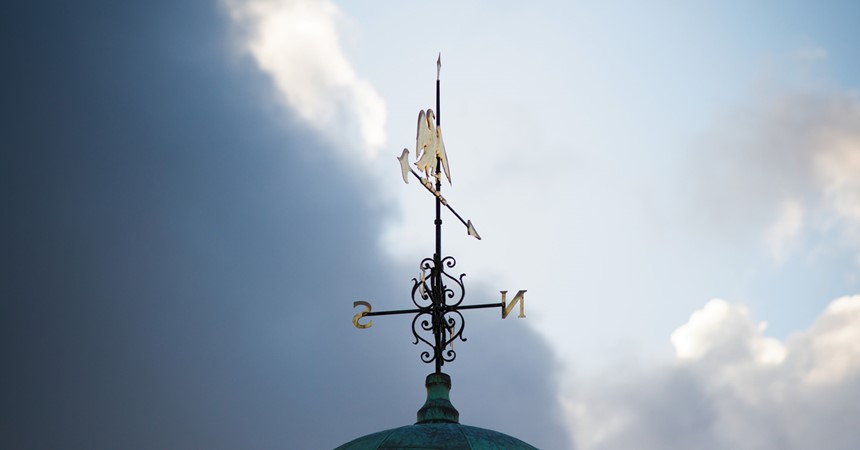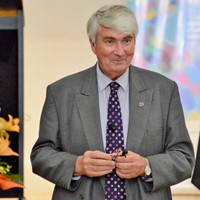But I take heart from the recent observation by ex-Prime Minister and unashamed Christian, Kevin Rudd, when he was speaking at the Australian Catholic University:
“You need folks out there who are professionally committed to the business of what I describe as focused, uncompromising Christian ethics, or in the case of the academy more broadly, public policy which in a given set of circumstances will deliver the goods minus politics of compromise. You need folks out there who are constantly holding up the ethical goal posts of our society. Because the nature of parliamentary democracy is that it will be a process of compromise south of that. And the day to day question, the week to week question, the year to year question, is how far south, a little bit, or a long way, or disappearing through the floor?”
I am one Catholic priest who has been speaking in the public square trying to set true north for those ethical goal posts for the last 30 years.
Let me reflect on just one recent contested political issue in the public square. I voted ‘yes’ in last year’s ABS survey on same sex marriage. As a priest, I was prepared to explain why I was voting ‘yes’ during the campaign. I voted ‘yes’, in part because I thought that the outcome was inevitable. But also, I thought that full civil recognition of such relationships was an idea whose time had come. What was needed was an outcome which helped to maintain respect for freedom of religion, the standing of the Churches, and the pastoral care and concern of everyone affected by such relationships, including the increasing number of children being brought up in households headed by same sex couples committed to each other and their children. I thought it appropriate that at least a handful of clergy should come out and, when asked, express their intention to vote ‘yes’.
I am also the CEO of Catholic Social Services Australia (CSSA). At the time of the survey, CSSA published this statement:
CSSA has no formal position on what enrolled voters should say in response to the voluntary survey being conducted by the ABS on whether the Marriage Act should be amended by the Australian Parliament to expand the definition of civil marriage to include a relationship between two persons of the same sex.
CSSA and its members are employers and service providers who happily affirm the dignity, gifts and personal commitments of all our employees and those whom we are privileged to serve. We never discriminate against persons on the basis of their sexuality or marital status.
Being a Catholic agency, CSSA operates under the auspices of the Catholic Bishops and accepts Church teaching on theological issues such as the sacramentality of marriage and the limits on what relationships are recognised by the Catholic Church as sacramental marriage.
Even though most Catholics who voted ended up voting ‘yes’ as I did, I presume that the majority of our bishops voted ‘No’. But I know that some bishops did vote ‘Yes’. In the lead up to the vote, a couple of bishops (and there were only a couple, though others may have been upset while deciding not to communicate directly with me) wrote to me taking strong exception to the position I had taken. One of these bishops claimed, ‘With regard to the current postal survey on legally redefining marriage to include same sex unions, a Catholic is morally obligated to vote “no”. There is no option to claim that in good conscience a Catholic can vote “yes”.’ I disagreed strongly with this bishop. I think I voted ‘yes’ in good conscience. I thought his argument was the twenty-first century equivalent of a bishop telling the flock that they had to vote for the DLP. I think those days have gone, and they’ve gone forever.
Archbishop Mark Coleridge, an accomplished scripture scholar and vice president of the Australian Catholic Bishops Conference, got it right when interviewed on national television during the plebiscite campaign. He said,
“To think of a Catholic vote all going one way is just naïve. Of course, it’s possible to vote ‘yes’. It depends why you vote ‘yes’. It’s possible to vote ‘no’, but equally it depends why you vote ‘no’…As a Catholic you can vote ‘yes’ or you can vote ‘no’. I personally will vote ‘no’ but for quite particular reasons. But I’m not going to stand here and say: you vote ‘no’; and you vote ‘yes’, and you’re a Catholic, you’ll go to hell. It’s not like that.”
No matter how we voted, we all now need to accept that the civil law of marriage will permit the exclusive, committed relationship of any two persons to be legally recognised, granting the couple endorsement and respect for their relationship and for their family.























































































